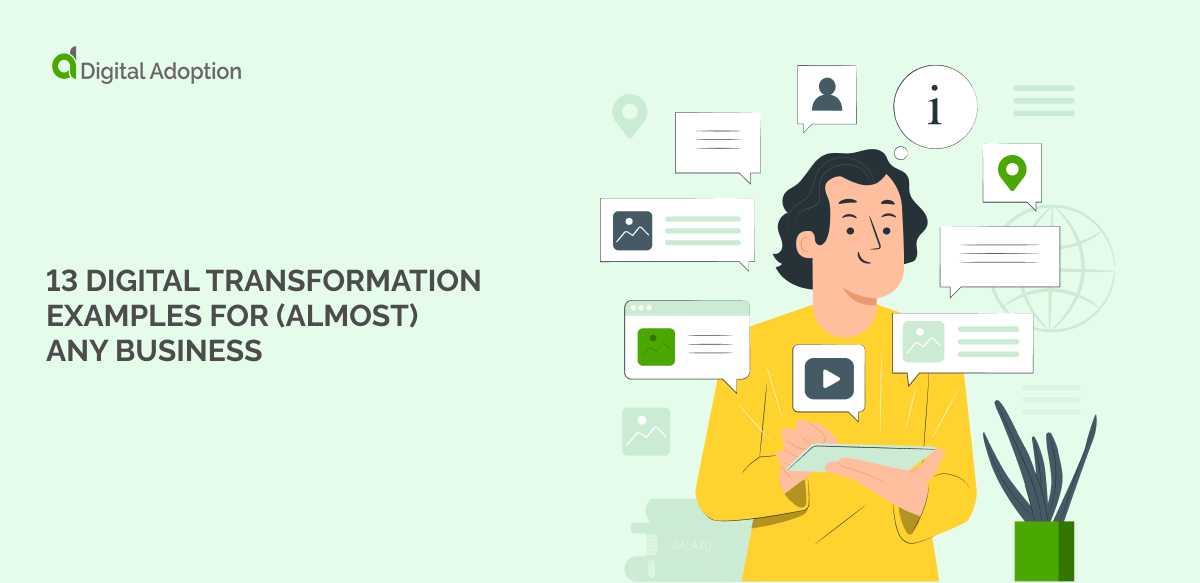Introduction
The Evolution Of Brick And Mortar Businesses In The Era Of Digital Transformation, In the not-so-distant past, brick and mortar businesses were the heartbeat of commerce. Physical stores were the go-to for consumers looking to make purchases, and the notion of shopping involved strolling through aisles and interacting with tangible products. However, the rise of digital transformation has reshaped the way business is conducted, challenging traditional models and prompting a reevaluation of strategies.

The Rise of E-Commerce Giants
E-commerce behemoths like Amazon and Alibaba have disrupted the retail landscape, drawing consumers away from physical stores to online platforms. This shift has forced brick and mortar businesses to rethink their approach and adapt to the changing dynamics of consumer behavior. From same-day delivery to extensive product catalogs, online retailers have set new standards that traditional stores must reckon with.
Challenges Faced by Brick and Mortar Stores
The challenges for brick and mortar stores are multifaceted. Not only do they contend with the convenience offered by online shopping, but they must also address the evolving preferences of consumers. The ease of comparing prices, reading reviews, and making purchases from the comfort of one’s home poses a considerable threat to the traditional retail experience.

The Role of Technology in Revitalizing Traditional Businesses
Acknowledging the need for change, brick and mortar businesses are harnessing technology to revitalize their operations. Establishing an online presence through websites and mobile apps has become imperative. Furthermore, leveraging data analytics allows businesses to understand their customers better, tailoring products and services to individual preferences.
Must Read=Top Most Searched Bravo Housewives Revealed
Enhancing In-Store Experiences
To counter the allure of online shopping, brick and mortar businesses are focusing on enhancing in-store experiences. Creating immersive environments that engage the senses and integrating digital technologies within physical stores offer a unique advantage. For example, interactive displays, augmented reality installations, and digital kiosks provide customers with an experience that transcends traditional retail.
The Power of Omnichannel Strategies
Omnichannel strategies blur the lines between online and offline channels, providing customers with a seamless experience regardless of how they choose to interact with a brand. Traditional businesses are adopting omnichannel approaches to meet customers where they are, ensuring consistency and continuity in the shopping journey.

Community Engagement and Local Presence
While online platforms connect businesses with a global audience, the importance of local connections cannot be overstated. Brick and mortar establishments contribute to the fabric of local communities, fostering a sense of belonging. Businesses that actively engage with and support their local communities often find increased loyalty and patronage.
Adopting Social Media for Business Growth
In an age dominated by social media, brick and mortar businesses are leveraging platforms like Instagram, Facebook, and Twitter for marketing and customer engagement. The ability to showcase products, share stories, and connect with customers on a personal level through social media contributes to brand visibility and loyalty.
Sustainability and Social Responsibility
Consumers are increasingly conscious of the environmental and social impact of their purchases. Brick and mortar businesses are responding by adopting sustainable practices and engaging in social responsibility initiatives. This not only aligns with changing consumer values but also builds trust and goodwill.
Data Security and Privacy Concerns
As businesses collect and utilize customer data for personalized experiences, addressing concerns about data security and privacy becomes paramount. Transparent data practices, secure transactions, and clear communication regarding data usage are essential in building and maintaining customer trust.

Surviving Economic Challenges
Navigating economic challenges is part and parcel of running a business. Traditional establishments must develop resilience strategies to weather economic downturns. Diversifying product offerings, optimizing operations, and maintaining a strong financial foundation are crucial elements in surviving uncertainties.
Upskilling Employees for the Digital Age
The digital transformation requires not just a shift in technology but also a corresponding upskilling of the workforce. Training employees in digital skills, fostering a culture of adaptability, and encouraging continuous learning are essential to ensure that brick and mortar businesses remain competitive in the digital age.

Embracing Augmented Reality and Virtual Reality
Innovative technologies such as augmented reality (AR) and virtual reality (VR) are increasingly becoming tools for enhancing customer experiences. From virtual try-ons to immersive shopping experiences, brick and mortar businesses are embracing these technologies to differentiate themselves and stay ahead of the curve.
Case Studies: Success Stories of Transformation
Highlighting success stories serves as inspiration for other brick and mortar businesses embarking on their digital transformation journey. Examining the strategies and tactics employed by successful transformations can provide valuable insights and guidance for those navigating the evolving landscape.
Conclusion
The evolution of brick and mortar businesses in the era of digital transformation is a testament to adaptability and innovation. While challenges persist, the integration of technology, a focus on customer experiences, and a commitment to community engagement